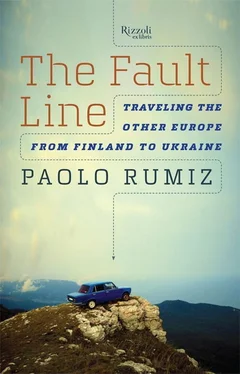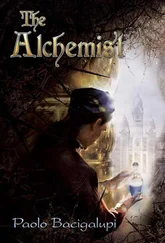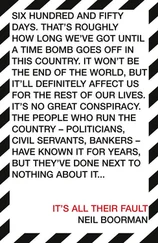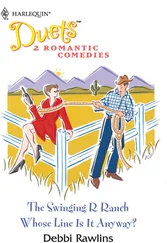Two down-and-out types are fishing on the convex side of the bend in the river. They smoke overlooking little whirlpools like hieroglyphics and a patrol of barn swallows diving into the current. The fishermen drag on their cigarettes until they burn their lips. They’re suspicious as otters and respond rudely to our attempt to break the ice. No, this is decidedly not Russia. The people here avoid us; they’re afraid. If I then take out my notebook, they run away even if I don’t ask them any questions. I don’t ask questions because I respect the rules. I’m here on a tourist visa, not to work as a reporter. I look, say hello, listen, and note down. That’s it. But looking and listening are more than enough to understand. With 450,000 police officers for its 10,000,000 inhabitants, Belarus is one scared country.
Three pigs behind a wooden fence. Rooting through the kitchen leftovers, they don’t smell as bad as ours. Without multinational feed even pig shit is different.
“How’s it going?” I ask a woman in the vegetable garden. Response: “All right, but our men are dying like flies.” She doesn’t say that the cause is alcohol. She doesn’t say that it’s the reason why masses of women run off to the West. I’d like to stay here; Pieskavce is enchanting and I could spend a week here, just fishing and writing. Places like this are to be lived right now before the global gets here and settles in with transgenic grain and supermarkets. But instead, it’s onward again, in the midst of clearings that open up between fairy-tale forests, teeming with birdsong. In one field, I see some girls in bikinis hunting for wild berries.
Triumphant verdure, orderliness, brilliant sunlight, intense heat. It’s unimaginable that in the winter, temperatures go down to forty below zero.
In Dziatlava, over a Catholic altar, God is painted with a wizard’s hat. He looks like the bard Väinämöinen encountered in the legend of Kalevala, up there in Karelia. In the shadows of an Orthodox church in another town, I encounter the reassuring eyes of Saint Nicholas. In Italy, we don’t know that gaze and that beard, everyone’s ideal grandfather. To understand it, we have to pass the frontier that divides us from Eastern Christianity. In another church, dedicated to saints Boris and Gleb, there is a catafalque covered in green velvet with a big cross and a wooden skull. In that semidarkness you can breathe in all of the silent lethargy of expectation, the same expectation that explodes in Orthodox churches on Easter Saturday night, from Greece all the way to Saint Petersburg and Vladivostok, with the shout: “He is risen!”
In Novogrudok there is a market with all of God’s bounty: strawberries, birch juice, and elderly women with colored bows on their heads. The Slav woman, Monika explains, tries to be pleasing even on the edge of the grave. The countryside captures us. Chernobyl is only 120 miles from here, but it seems far, far away. In Karelichy, the farmers milk their cows in the open air, in the middle of the countryside. They invite us to stay over; the pig market is tomorrow.
“Come!” they invite us joyously, but we can’t. We have to get the train at dawn in Baranovichi. Time, here too, time is short. I’d like to stay, like Primo Levi in Stariya Darohi. I should have planned a shorter journey. In Turzhets I get lost amid dirt roads and skeins of geese waddling back home to their barnyards.
Horses ride into the violet sky, reflected in small lakes of the same color. They all have a name; here as in Poland they are seen as friends of man, and butchering them is viewed as a barbarous act. I think intensely of Mario Rigoni Stern, who died only recently. He loved this world, which welcomed him fraternally in 1943–44, even though he was a soldier on the opposite side in the war.
In Mir, next to a seventeenth-century castle restored to look like an ice cream cake, a rock concert is about to begin. Patrols of girls are arriving from every direction, but where are the males? Ah, there they are; there’s only a handful of them, and they look lost. At dusk, the old men vanish, too. As in Grodno, there’s a curfew for adults. At the hotel Gorizont (horizon) in Baranovichi, where the taxi driver, fed up with our aimless wandering, drops us off with a gruff good-bye, I notice that I’m the only man in the dining room. On one side, a table of lovely forty-year-olds, maybe a graduation anniversary. On the other, a group of newly licensed hairdressers, celebrating the end of their training course. Phenoms with towering high heels, miniskirts, hot pants, sky-blue tulle wedding veils, leopard-skin leotards. They come in all together, in a line, with long, catwalk strides. They plunk down bottles of vodka on the table already laid out with sausages, cucumbers, and tomatoes, and then they start to dance. I’m in a feminine universe; even with my eyes closed, I would realize it from the smell.
The orchestra strikes up a samba and the hairdressers go wild. They’re into it, they’re sweating, they’re happy to be there in the company of women. They don’t need men. The local fauna is depressing. Every so often, two or three men stop in front of a side door to have a look. Glassy-eyed, big-bellied boozers, half drunk, vanilla or mouse-gray shoes and white socks. Stalinist ruins. They don’t dare come in to the bacchanal; they walk off with their tails between their legs.
Incredible the ferment in the Communist provinces. We leave after a half hour of ear-splitting uproar.
The square is full of young people. Twelve-year-old girls go by in high heels, tanga panties in plain view, and heavy makeup. Everybody looks us over: we’re aliens, idiots who come looking in the East instead of staying comfortable in the West. There’s an Internet café. I go in. A smart aleck with a face that’s asking to be slapped slips me a keyboard with illegible letters. I’ve got Net time until 10:00, but at 9:52 my connection goes down when I’m writing to my son. I ask Slap-My-Face if he’s the one who unplugged me. He says yes. I respond that it’s not 10:00 yet. He says it is. I respond that even if it is, you don’t cut someone off without notice. He looks at me as though I’m a microbe; other young people give me the microbe look, too. I’m a sixty-year-old who has defied the curfew. Maybe even a dirty old man who wants to steal their women.
I leave, without even looking for the police. In a country that has a police officer for every twenty inhabitants, the police are unnecessary if you already have alcohol and the void promoted by unbridled consumption. A thunderstorm hits, and Baranovichi sinks into catacombal darkness. The streetlights go off at 11:00 to save energy. Poor country, I worry that it will sell itself for under market value, end up in the hands of unscrupulous merchants, with all of its sweet, endless countryside, its rivers, its fishing swallows. So we make our escape in a taxi in the middle of the night, through suburbs full of water and darkness, toward the central station, which awaits us amid thunder and lightning with the train from Saint Petersburg to Lviv already in position at the rain-soaked platform, impregnated by the smell of patient humanity in transit.
The train for Lviv, heading for the Ukraine border. Night, rain, and swamps. For three hours, the glowing caterpillar penetrates like a submarine in a world of water. Everything is so monotonous that it would be easy to miss your station.
That’s what happens to a woman and her child. As soon as she realizes that she hasn’t gotten off at the right stop, she screams desperately, “Disaster, disaster!” but the whole car laughs heartily at the scene, only to then shower her with advice. Day is dawning, the sky opens up over the bridge on the Pripet River, much wider than the Po. We are in the heart of Polesye, another of the mythical shadow regions on this journey. Kapuścińsky was born here, the unforgettable maestro of my journeying.
Читать дальше












